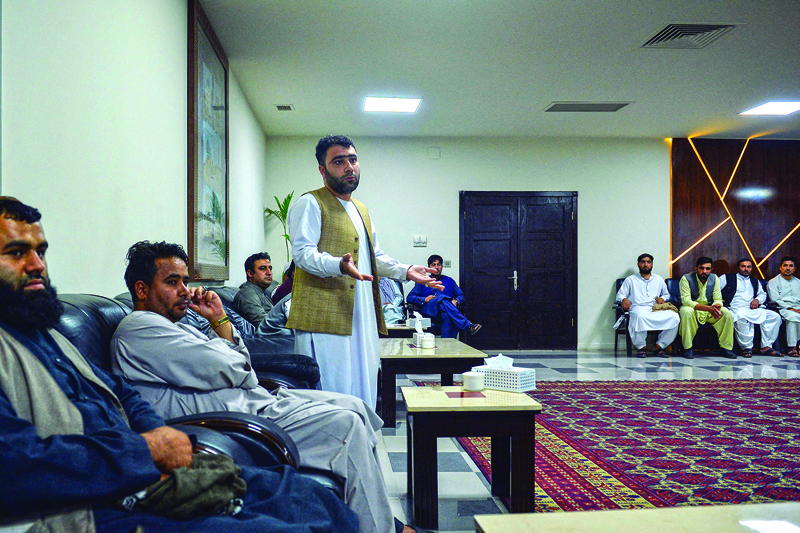KABUL: Merchants in the historic Afghan trading city of Herat fear for their future after being hit by Taleban tax collection and a backlog for goods to clear customs. The country's third-biggest city is a strategic hub along the ancient Silk Road-with nearby borders to Iran and Turkmenistan-and is a key generator of revenue for the country.
Although the Taleban blame rampant corruption by the previous government for a rise in costs for importers, businessmen in Herat say they face going under if the hardline Islamists do not lower taxes. "I'm feeling really hopeless," merchant Faghir Ahmad told AFP. Since the Taleban stormed to power in mid-August, food prices have gone up, the cost of fuel has risen and there are fewer opportunities to make money. Afghanistan's central bank has access to only a fraction of its usual financing, and is cut off from the international banking system and its own foreign currency reserves.
It means cash is in short supply and banks are enforcing a weekly withdrawal limit of $200 per person. "First when the Taleban came, the people were very happy because we saw that security was coming, but unfortunately now the price for everything has gone up and people aren't able to afford things," said Ahmad, who imports food into the western city from Iran.
'Tough work'
Ahmad was one of about 40 Herat business leaders at a rowdy Herat city Chamber of Commerce meeting this week, complaining of taxes and a backlog of 3,000 trucks waiting to be processed. Customs officials were long accused of taking bribes from traders, pocketing the cash instead of collecting revenue for state coffers. Taleban spokesman Zabihullah Mujahid told a press conference Tuesday that the Taleban hadn't raised taxes, but were rather collecting them properly for the first time. "The system under the previous government had a lot of problems with corruption, but it was OK," said Abdul Latif Yousufzei, who trades in food and cleaning products.
"Under this (Taleban) system we do not have any problems with corruption but the taxes have been raised, and we cannot pay that much. I'm really not hopeful for the future." At Herat's customs clearance center this week, workers unloaded plastic bottle tops, plates, salt cakes and long-life cream cheese from trucks into warehouses in the midday heat. The laborers told AFP that since the Taleban took control of the facility, their already-meagre wages have gone down, and sometimes they don't know if they will be paid at all. Mir Allam, 70, sat with a group of fellow workers in the shade next to a truck after a shift.
"We did tough work but we got less money," he said, revealing to AFP he had just been paid about $1.25 for unloading a 20-ton lorry with six others. Another grey-bearded worker, who did not want to give his name, said that under the previous system he was paid immediately after unloading a truck. "Now, when we have finished the work, it's not clear if they will pay us or not."
'Some problems'
Younes Qazizadeh, head of the Herat Chamber of Commerce, said he was working with the merchants and the Taleban to reach a resolution, adding he believed business should never be related to any political system or regime. "When any new regime comes to a country there will be some problems," he said. "People came here to speak their voices and they are lobbying the Taleban government to bring changes for the trade of Afghanistan," he said.
"We also hope that these changes will come and it's going to be much better."
Herat's deputy governor agreed there had been "some problems with the taxes", but that a solution was being worked on. "We wrote down the requests of some of those traders and we sent them to the finance ministry," said Shir Ahmad Mohajer. "They are going to send a delegation to Herat to listen to the traders, and we are going to act." - AFP



